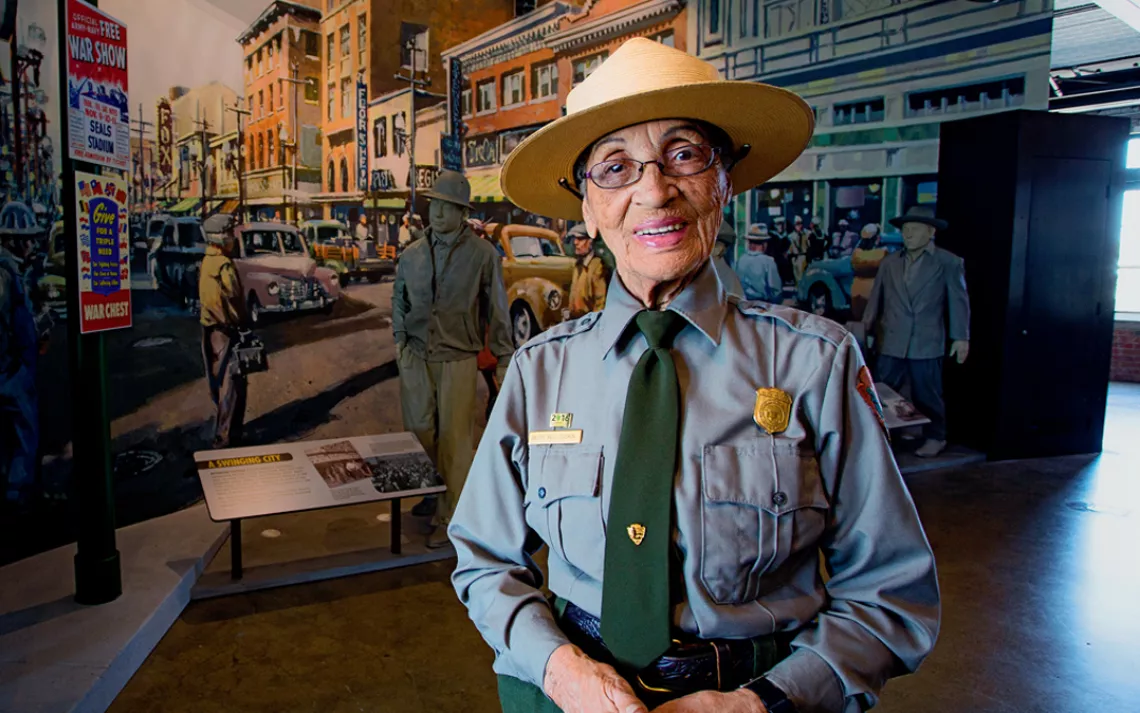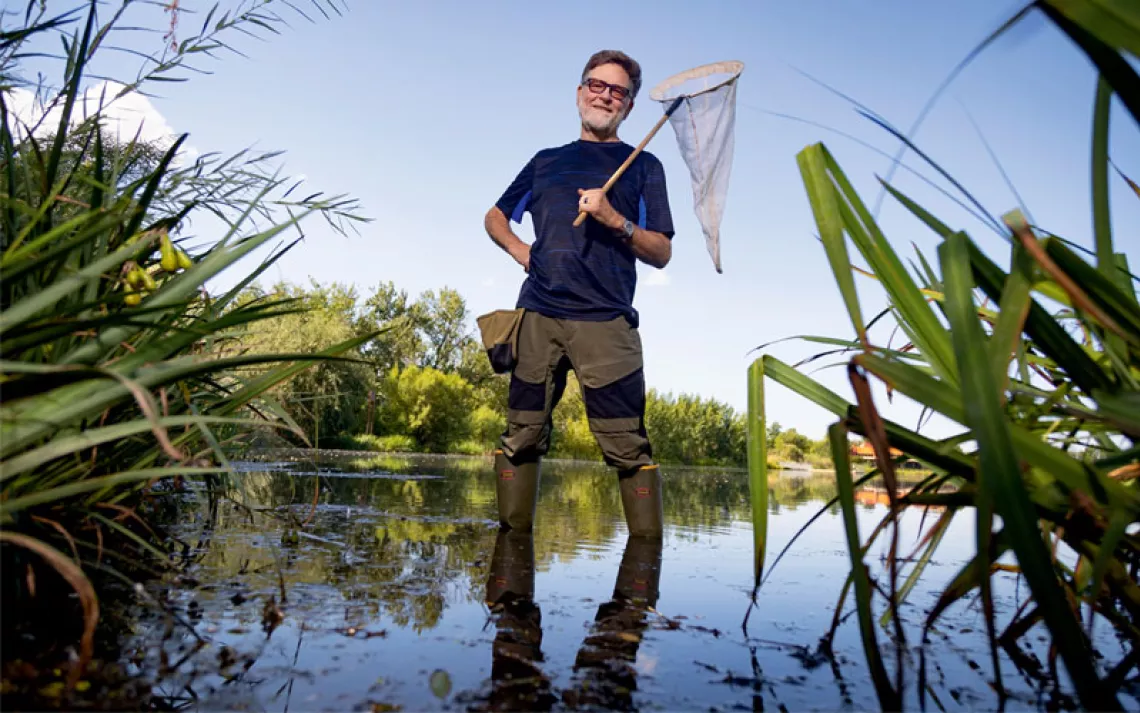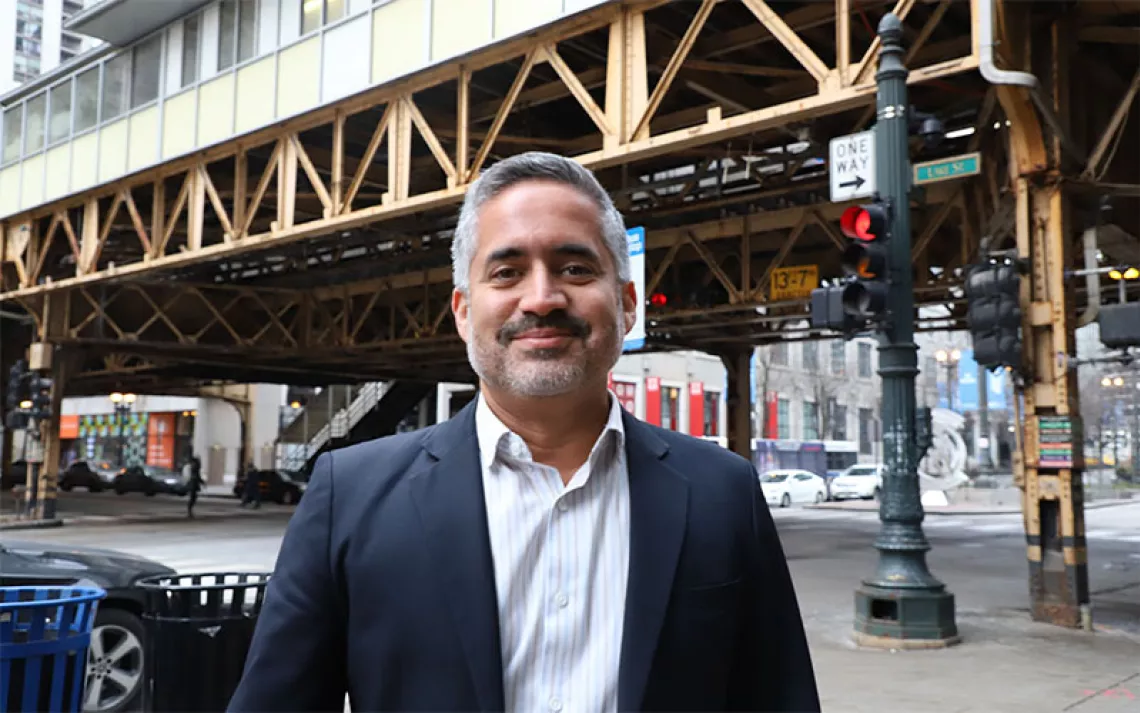Betty Reid Soskin Is Richmond's "Resident Rosie"
America's oldest park ranger reminds visitors of our country's complicated past

Betty Reid Soskin, America's oldest park ranger, at the Rosie the Riveter/WWII Home Front National Historical Park in Richmond, California. | Photo by Edward Caldwell
Betty Reid Soskin has one rule when she's giving talks at Richmond, California's Rosie the Riveter/WWII Home Front National Historical Park. "I have to have all the lights on in the theater," she says. "I've got to connect with people's eyes. Otherwise, I don't come alive."
Connecting with audiences is a big part of Soskin's job as an interpretive ranger. Every day, visitors come by the busload to view the nation's largest concentration of intact civilian World War II structures—and to learn about the women and men who worked in Richmond's 55 war-related industries between 1942 and 1945. Guests who time their visit right also get to attend one of Soskin's popular triweekly presentations.
For about an hour, the 94-year-old ranger sits down with tour groups in the visitor center's small theater to recount her personal history, from her first job in 1942 as a file clerk for a black auxiliary of a segregated boilers union to her role as a consultant for the park in 2003.
Soskin is determined to keep the site from becoming what she calls a "bumper sticker park"—omitting stories of inequality in favor of a Pollyannaish narrative. As an African American woman who had worked in Richmond during the wartime boom, she was the only person involved in planning the park who immediately recognized the historic structures as sites of racial segregation.
Richmond's park is not unique. Many national park units are historic sites and battlefields set aside to preserve U.S. history. They play an essential part, Soskin argues, in educating people about our country's complicated past and present.
"By visiting the parks, anyone can learn about any era in our history—the heroic places or the contentious places, the scenic wonders, the battlefields, the shameful places and the painful places," Soskin explains. "We can revisit those moments, process that history, and eventually forgive ourselves in order to move forward into a more compassionate future, together."
Preserving the Past
Of the 411 national park units in the United States, 50 are national historical parks like Rosie the Riveter/WWII Home Front NHP. Over one-third of national park sites are in metro areas.
 The Magazine of The Sierra Club
The Magazine of The Sierra Club







